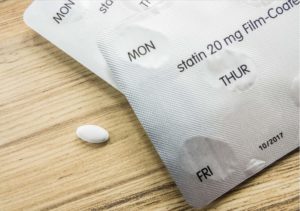
Professor Jamil Mayet
Specialist expertise: Breathlessness, Cardiovascular CT Scans, Cardiac CT, Cardiac Imaging, Cardiology, Chest Pain, Hypertension, Palpitations.
In the UK, as in other Western nations, large numbers of people have extremely high cholesterol levels. This is one of the main reasons for the very high levels of heart attacks, strokes and other cardiovascular problems that we have in our society. The average cholesterol level in the UK is about 5mmol/l, compared with under 2mmol/l in societies in which westernised lifestyles are not the norm. In the UK, therefore, the average person has about two and a half times as much fat in his or her blood vessels. It is not surprising that our arteries get clogged up with fat.

In the UK, as in other Western nations, large numbers of people have extremely high cholesterol levels. This is one of the main reasons for the very high levels of heart attacks, strokes and other cardiovascular problems that we have in our society. The average cholesterol level in the UK is about 5mmol/l, compared with under 2mmol/l in societies in which westernised lifestyles are not the norm. In the UK, therefore, the average person has about two and a half times as much fat in his or her blood vessels. It is not surprising that our arteries get clogged up with fat.
Altering our diet can have some impact on cholesterol levels, but this often makes only a small impact. We do have medications, however,that are highly effective at lowering cholesterol, and these take the form of particular statins. These drugs have been tested in rigorous clinical trials. These are called double blind, randomised controlled trials, where patients either get the drug or a dummy (placebo) tablet. Neither the patient, nor their doctor, know the drug to which they have been allocated (randomised). An independent observer, who has nothing to do with any of the patients’ medical care, then counts up how many deaths, heart attacks, strokes and other events occur in patients taking the statin drug, and how many of these events occur in patients taking the placebo tablets. Our department at Imperial College London ran and published one of these trials, the ASCOT study, assessing statins in patients with high blood pressure. This study showed that, for every 1mmol/l reduction in LDL cholesterol, there is about a 20% reduction in deaths, heart attacks or strokes in patients taking statins. In view of this key information from these studies, many patients are advised to take statins in order to reduce their future risk of heart attack, strokes and death.
However, many patients remain sceptical because there is a lot of information about the potential problems with statins in the press and on the internet. Some patients don’t like taking tablets because it is unnatural. It is a sad reality, however, that many aspects of our westernised lifestyles are unnatural, from breathing in the polluted air in our cities, to eating processed food and taking insufficient exercise. And that’s without mentioning some of the other, potentially more damaging, lifestyle choices that we may make. Perhaps adding a tablet to what we eat that rebalances some of the adverse effects of Westernisation isn’t so bad in the grand scheme of things.
A lot of patients describe adverse side effects when they take statins, and that can be one of the main reasons that patients don’t continue taking them. However, many of the potential side effects, like muscle aches or indigestion, are vague, and people who don’t take stains also commonly get these symptoms. Statins have attracted a lot of media interest, probably because so many people are taking them, and there is a lot of publicly available information about what these side effects might be. Concern about these possible side effects does influence some patients’ decisions about whether or not to take statins.
Our research team at Imperial College London recently looked back at the side effect data in our ASCOT statin study. The study found that there was very little difference in the side effects experienced by the patient group taking the statin compared with the group taking the placebo (the dummy tablet) when the patients didn’t know what they were taking. When the study was over, and patients were told what tablets they were taking, however, the reported side effects from the patients taking statins was much higher than they had been when they didn’t know that they were taking the drug.
Another study that has recently been published from our department at Imperial College London used an interesting technique in which patients were given either a statin, a dummy tablet or no tablet at all for a period of time. They then switched to the other tablet or to no tablet so they had some time in each group. They reported their symptoms during the course of the study. The study suggested that most side effects attributed to statins are because patients expect to get the side effects (called the “nocebo effect”). This is the reverse of the “placebo effect” that you may have heard of, where patients feel better when they take treatments because they expect to do so.
It is important that, when any treatment is recommended, there is a careful explanation of the benefits of the treatment. It is also important to discuss any possible complications and side effects that may occur, along with other possible causes of those symptoms. This is particularly important in the case of statins, because all of the different information available on this subject can make it very difficult for patients to make the best choice for them. Our role as cardiovascular experts is to help patients make informed choices about what they wish to do.
Wood FA, Howard JP, Francis DP et al. New Engl J Med 2020.
Click here to read the full research
Here at OneWelbeck, we have a team of specialists, state of the art facilities and diagnostics, and highly competitive financial packages for self-funding patients as well as those with private health care.
CardiologyProfessor Jamil Mayet is a consultant cardiologist at OneWelbeck Heart Health.